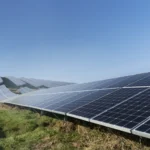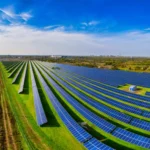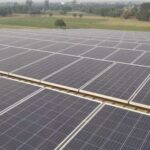Net Metering and Its Advantages Explained: How Solar Users Save More on Energy Bills
Net Metering and Its Advantages Explained: How Solar Users Save More on Energy Bills
with Mr. Pradeep Prakash Singhal, CEO (Smart Roof Solar)
Q1. Sir, we keep hearing about net metering in the solar energy sector. Could you please tell us what is this net metering all about?
A1. Let’s start by understanding the basics of Net metering. Currently all electrical connections are metered by a uni-directional meter because we are only consuming power and not generating any power. But, after installation of a solar power plant, we are also generating electricity. So, now there is a possibility that when we generate power but are not able to consume that power, the surplus power goes to the DISCOM, and to keep a record of the power consumed, power generated, and the power exported to the grid; the uni-directional meter is changed to a bi-directional meter by DISCOM. This bidirectional meter is also called export import meter. And this whole process is called net metering.
For better understanding let’s consider 3 scenarios.
Scenario 1
When the power is being generated and it is also getting consumed and there is no export, in this case, we pay to the DISCOM only for the imported power.
Scenario 2
When the power is being generated and it is not getting fully consumed, the surplus power is exported back to the DISCOM via the grid. In this case, you are billed net of import and export of units.
Scenario 3
When the power is being generated and it is totally not being consumed, for example, on a holiday, all the generated power is exported to the DISCOM via the grid. In this case you are billed net of import and export of units. The adjustment of bills is done monthly. In certain states, this is also done on yearly basis.
Q2. Please tell us the main advantages of net metering?
A2. The key advantage is that the factory can not only generate enough power for its day consumption but can also generate more power during sunny hours to neutralize its consumption during night hours.
Also, any power generated during holidays, gets utilized leading to zero wastage. Net metering facility gives a big boost to the bottom line of the industry.
Q3. Sir, what about the DISCOMs? Are they keen to give this net metering facility?
A3. DISCOMs are keen to give net metering facility to smaller consumers, not to industrial or large consumers. In fact, UP, West Bengal, and Assam have already stopped giving net metering facility to industrial consumers. Uttrakhand is also moving in the same direction.
Almost all the states have capped the net metering facilities to 500kW. In fact, this 500kW is also on the insistence of Honorable Minister for Road and Transport, Sh. Nitin Gadkari.
Q4. Sir in that case, what will happen to consumers who’ve already installed net metering at their solar plants?
A4. The benefits of net metering will continue to be available to these plants, even if DISCOMs later decide to withdraw net metering facilities. Net metering facility agreement with DISCOMs is of 25 years.
Q5. Sir, you mentioned that net metering is capped at 500kW. Does this mean, that factory owners cannot install solar plants more than 500kW?
A5. No, it is not like that. If the factories are having higher consumption continuous, then they can plan to install solar plants of more than 500kW also, but under captive route. Captive route means, if a consumer is installing solar plant only for self use. Factories need to ensure that they do not export power of more than 500kW at any given point of time. This is possible by installing a digital device, wherever more than 500kW solar plant is installed. Plant beyond 500kW needs to be connected to a different LT panel within the company.
Q6. Ok sir, what would be your final advice for industrialists who are, let’s say, considering getting a solar plant for their factories?
A6. The consumers should install solar plants with net metering to the maximum possible limit. Once you get net metering, it is for 25 years. If you got it and your competitors do not have it, you have got very strong competitive advantage.
Suggested Articles

India and Japan Strengthen Renewable Energy Cooperation
India and Japan have initiated a partnership under the Asia Energy Transition Initiative (AETI) to support India’s clean energy transition. India has set an ambitious target of achieving net-zero by 2070, while Japan aims to achieve the same by 2050.

China’s Solar Industry Poised for Continued Growth in 2023 and Beyond
China’s solar industry is set for continued growth in 2023 and beyond, driving global renewable energy expansion and technological advancements.
Researchers Propose New Way to Make Nuclear Power Plants Safer
Researchers propose innovative methods to enhance the safety of nuclear power plants, aiming to reduce risks and improve operational security.

India’s Solar Capacity Growth Slows Down in Q1 2023
India’s solar capacity growth slowed in Q1 2023. Explore the factors behind the slowdown and its impact on the country’s renewable energy progress.

How to Safely Install Solar Panels on Metal and Asbestos Rooftops
Discover how solar systems can be installed on metal sheds and asbestos roofs, making factories more energy-efficient and sustainable

Group Net Metering for Solar Projects: A Smart Way to Maximize Solar Energy Generation
Discover how group net metering allows multiple participants to share solar energy from a single project, reduce electricity bills, and enhance solar efficiency.

Solar Panel Efficiency and Temperature: What You Need to Know
The stronger the sun, the higher the temperature and more energy your solar panels produce, right? No.

Eco-Friendly Solar Panels: The Future of Sustainable Power
Eco-friendly solar panels are revolutionizing the way we generate clean energy. This blog explores their benefits, sustainable materials, and role in reducing carbon footprint while providing efficient energy solutions for residential, industrial, and commercial use. Learn why investing in eco-friendly solar technology is the future of sustainable power.
